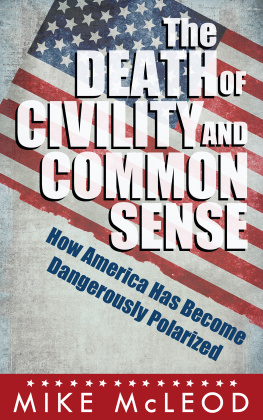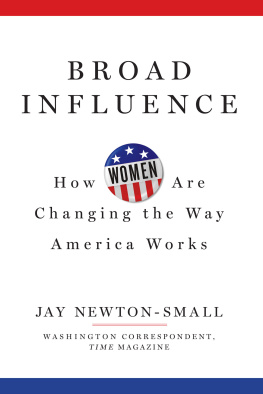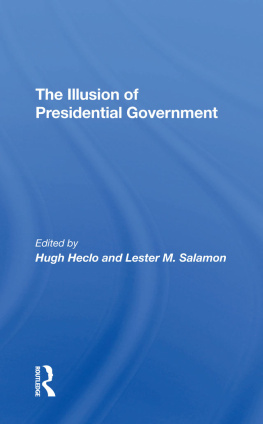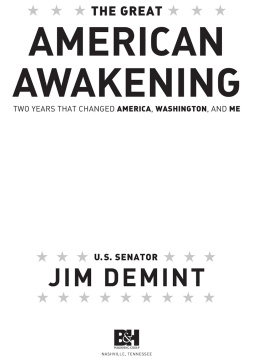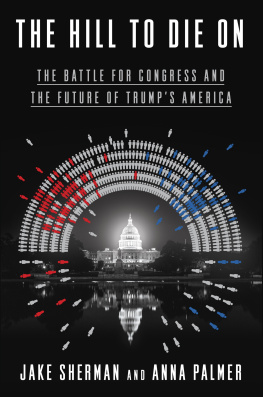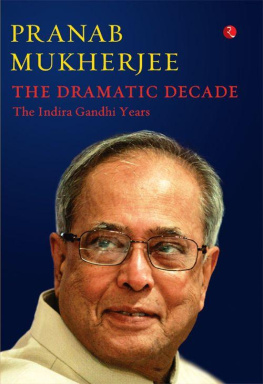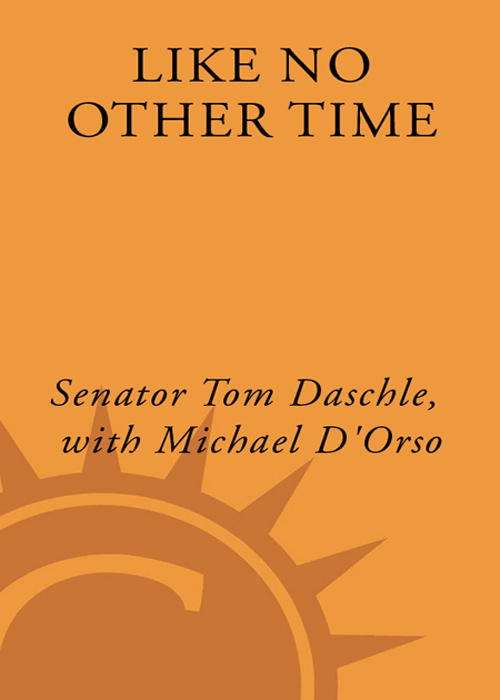
LIKE NO
OTHER
TIME
The 107th Congress and the
Two Years that Changed
America Forever
SENATOR TOM DASCHLE
WITH MICHAEL DORSO
CROWN PUBLISHERS / NEW YORK
Contents
To my wife, Linda, my mother, my children, and my grandchildren, without whom none of this would be possible
LIKE NO OTHER TIME
Introduction
THE WIND WAS BLOWING HARD the night of November 5, 2002election nighthard and cold, as it tends to do that time of year in South Dakota. It was late, nearly 2:00 A.M. The cavernous main hall of the Sheraton Sioux Falls Hotel and Convention Center looked like a morgue. Eight hours earlier, the room had been filled wall to wall with hundreds of men, women, and children bursting with excitement and hope, with visions of victory for our own man from South Dakota, my colleague Tim Johnson, and of celebration for the Democratic Party across the whole nation.
Now those hopes lay in ruins. A few dozen faithful lingered around the auditoriums TV sets, fatigued and in shock, watching the final bad news trickle in from the West Coast. We still didnt know if Tim might hold on to his Senate seat, but almost everywhere elseGeorgia, Minnesota, Missouri, North Carolina, Texas, South Carolina, Colorado, New Hampshirelay a landscape of loss. Flags and banners and a few sad, sorry balloons dangled limply from the main halls ceiling. A battery of a dozen or so TV cameras and light towers arrayed on a platform at the rear of the room stood dark and untended, their crews off in the hospitality suites picking at leftover trays of crackers and cold cuts. The Eagles One of These Nights drifted out from the stage-mounted speakers.
I was up in our sixth-floor suitemy wife Lindas and minestanding at the window, looking down at the streetlights of Sioux Falls and out at the black, flat blankness of the prairie beyond. I was devastated. Numb. Id done my best to put on a game face several hours before, when the network anchorsTom Brokaw, Peter Jennings, Dan Rather, Aaron Brownhad moved toward the conclusion of their election evening coverage by each asking me, as I sat miked in a makeshift studio down in one of the convention centers back rooms, to react to this sweeping victory for the Republicans.
What could I say? How could I begin to describe the heartache I felt for my colleagues who had fallen that day, most of all my dear friend Max Cleland? Max didnt deserve this fate, purely and simply. It was gut-wrenching to watch a war hero victimized by a campaign that questioned his patriotismthis man of such courage and honor, who lost an arm and both legs to a grenade in Vietnam, linked to Saddam Hussein and Osama bin Laden by Republican television ads that questioned his commitment to our nations security.
All politics is, in one way or another, personal, and that night I felt Max Clelands loss in a deeply personal way. I felt responsible, as the leader of our party, for what had happened to Max. And to Jean Carnahan in Missouri. And to Erskine Bowles in North Carolina. And to Jeanne Shaheen in New Hampshire. And to Tom Strickland in Colorado. And to Walter Mondale in Minnesota.
Minnesota. How to even begin sorting out the swirl of thoughts and emotions about what had transpired there? The shock of Paul Wellstones death less than two weeks before had not yet faded for any of ussweet, unyielding Paul, his wife, Sheila, their daughter Marcia, and the five others who lost their lives in that terrible plane crash in the freezing October rain of that gray Minnesota morning.
Had any of us been able to truly and completely grieve that loss? The clock had been ticking toward an election, and it would not slow down, not even for death. A new candidate had to be found. Walter Mondale stepped forward, and under very difficult circumstances, he did his statesmanlike best. But it wasnt enough.
For me, this was the end of two of the most grueling years of my lifeand the end of two of the most eventful, tragic, and historic years in the life of the United States Senate, if not of the United States itself.
It might seem strange to begin a book about hope and the future with an image of failure and defeat. But I think thats exactly where this book ought to begin. Why? Because we have come to a point in our nations history whereas individuals and as a societythe spaces that lie between hope and despair, between triumph and disaster, between vision and blindness, or between candor and deceit have never been so minuscule. We have arrived at a time in our culture where the alignment of politics, of power, of ideologies, and of beliefs is arrayed so incredibly evenly that, while the visions and views of one group or another may be a universe apart, only the narrowest of margins separates them.
The result is an unprecedented sense of precariousness. The very parity that we pursue in a society based on a desire for diversity and inclusion has created a climate of instability like never before, a sense that the way things seem at one moment can be turned completely upside down the next.
Look at the last presidential election, with winners and losers stepping forward and then back, in a tense, unprecedented dance that was ultimately ended not by voters, but by judges.
Look at the Senate, split straight down the middle by that same election, for the first time in history, fifty lawmakers on one side and fifty on the other, as fragile and contentious a context for guiding our nation as could possibly be created.
Think of how that structure became rearranged, first by one man changing his mind (Jim Jeffords), then by another man speaking it (Trent Lott).
Think of the heartaching brilliance of a cloudless blue September morning, shattered forever by the televised sight of two silver aircraft plunging soundlessly into those defenseless towers and plunging us all into a new way of seeing ourselves and the world.
Think of itthe wafer-thin shadings that have come to separate those we call friends from those we call foes, the slightest of factors that determine the difference between those who will lead and those who must follow.
The first three years of this new century have been marked by a head-spinning succession of critical turning points for America, one after the other, crucible moments balanced on the edge of a razor, where the slightest shift in the winds of circumstance can alter the course of an entire nation, and one unthinkable blow can transform the fate of the entire planet.
Forty-eight hours after election day 2000, as America was confronting the first contested presidential results in more than a century, I found myself flying to speak in Austin, Texas. I didnt know who the next president would be. With two Senate races still too close to call, I also didnt know whether we Democrats might actually retake the Senatea possibility almost no one had predicted. I didnt know if I was still the minority leader of the United States Senate or the majority leader.
All I knew for sure as the plane touched down that Thursday evening was that, even with my many close friends who live there, Austin, Texas, was the last place on earth I wanted to be. But there I was, at the Lyndon Johnson Library, speaking to a packed auditorium about the challenges LBJ had faced as the Senate Democratic leader in a situation as tenuous in its own way as the one we were facing at that moment. During the course of the 84th Congress, from 1955 through 1956a Congress in which Johnson served as a Democratic leadernine of his Senate colleagues passed away. Nine! I was stunned to discover that figure. I was also strangely comforted, which I told the audience in Austin that day. We might be in an unstable situation, I said, but no matter what crises the next Senate may have to weather, there was no way we were going to lose nine senators. Incomprehensible.
Next page

